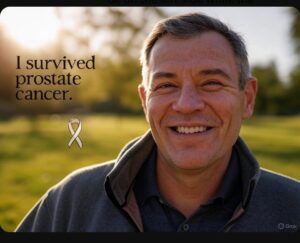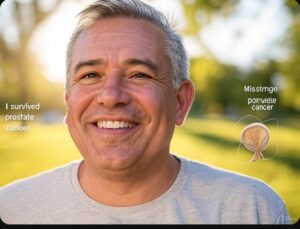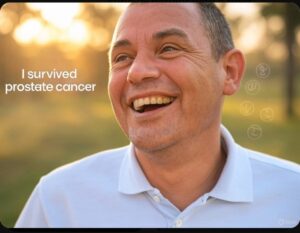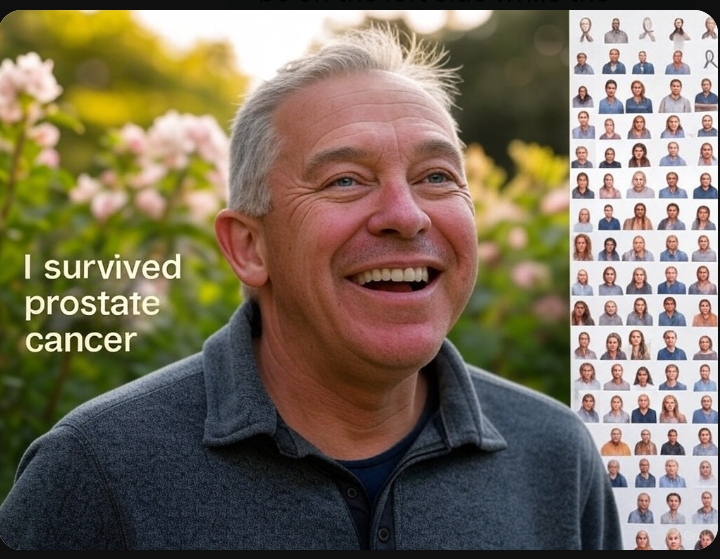A prostate cancer diagnosis can feel like a seismic shift in life. The immediate question that floods the mind is, “Is this curable?” Here’s the uplifting truth: when caught early, prostate cancer is one of the most treatable cancers. With over 1 in 8 men facing this diagnosis in their lifetime, understanding your options and acting wisely can make all the difference. Let’s dive into the facts, a survivor’s journey, and the missteps to avoid on your path to health.
Prostate Cancer 101: Survival Rates and Why Timing Matters
The prostate, a walnut-sized gland crucial for male reproductive function, can harbor cancer that often grows slowly. The key to cure lies in when it’s found:
- Localized (confined to the prostate): 5-year survival rate nears 100%. Treatments like surgery, radiation, or active surveillance often eradicate or control the disease.
- Regional (spread nearby): Survival remains ~100% with advanced therapies.
- Metastatic (spread distantly): Survival drops to 34%, but innovative treatments still extend and enhance life.
Early detection is your ally. Regular PSA blood tests and digital exams, especially for men over 50 or those with a family history, are critical. As Dr. John Smith, a leading urologist, notes: “Prostate cancer whispers before it shouts. Screening catches it in its silent phase.”
A Survivor’s Tale: James’ Second Chance
James, 62, almost skipped his routine checkup. Thankfully, his wife nudged him to go. A PSA test flagged concern, leading to a biopsy and a low-risk Gleason 6 diagnosis.
“I panicked, thinking cancer meant my time was up,” James recalls. His doctor recommended active surveillance—regular monitoring without immediate treatment. For three years, checkups ruled his calendar. When his Gleason score inched up to 7, he opted for robotic surgery.
Today, James is cancer-free and hiking with grandkids. “Early detection saved me. Don’t fear the test—fear skipping it,” he urges. His story underscores a vital lesson: not all prostate cancer needs urgent treatment, but all demands attention.
5 Common Mistakes That Derail Prostate Cancer Outcomes


- Skipping Screenings: Prostate cancer often has no symptoms early on. Delaying PSA tests risks late-stage discovery.
- Do this instead: Start screenings at 50 (45 if high-risk) and discuss frequency with your doctor.
- Overtreating Low-Risk Cases: Aggressive treatment isn’t always better. Studies like the PIVOT Trial show active surveillance preserves quality of life for many.
- Do this instead: For low-risk cases, ask, “Can we monitor first?”
- Ignoring Red Flags: Bone pain, fatigue, or unexplained weight loss may signal advanced cancer.
- Do this instead: Report new symptoms promptly—early intervention matters.
- Chasing Miracle Cures: Herbs won’t cure cancer. As one oncologist tweeted: “Leaves and weeds can’t replace evidence-based care.”
- Do this instead: Pair doctor-approved treatments with lifestyle changes (e.g., diet, exercise).
- Settling for One Opinion: Treatment biases exist. One doctor might push surgery; another could suggest radiation.
- Do this instead: Seek a second opinion. Knowledge is power.
Is Prostate Cancer Curable for You? Key Factors
Your prognosis hinges on:
- Stage at diagnosis (localized vs. metastatic).
- Gleason score (tumor aggressiveness: 6=low, 7=medium, 8–10=high).
- PSA trends (rising levels post-treatment may signal recurrence).
- Overall health (fitness improves treatment tolerance).
Action steps:
- Get screened if you’re 50+ (earlier if high-risk).
- Track your PSA diligently post-diagnosis.
- Ask about genetic testing if cancer runs in your family.
In addition, Prostan Plus is a multi-ingredient food supplement that supports prostate health. It contributes to the maintenance of healthy prostate function, supports the maintenance of normal urinary function and contributes to urinary comfort in men. Prostan Plus also supports peak urinary flow and renal excretory function.
Final Thoughts: Empowerment Through Knowledge
Prostate cancer’s curability isn’t a myth—it’s a reality for countless men who act early. James’ journey from fear to freedom mirrors what’s possible with vigilance and informed choices. Avoid the pitfalls, lean on science, and remember: this cancer is often a marathon, not a sprint.
Your next step? Talk to your doctor about screening. Share this post to spread hope—it might save a life.

